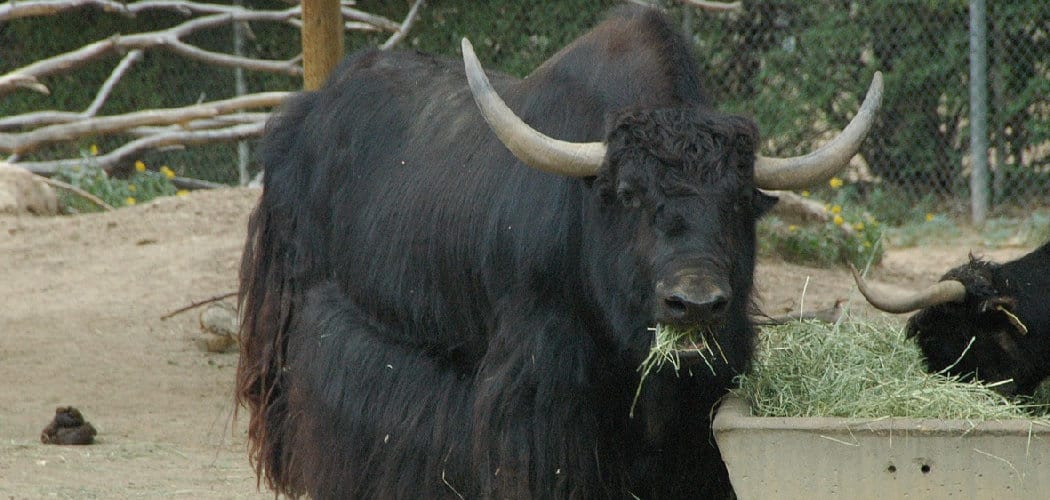In the spirituality of many cultures, the yak is seen as a sacred animal. Yak spirits are believed to possess great power and wisdom and are often called upon for help in times of need. Yak spirit animals can provide guidance and support during difficult times and can give strength in the face of adversity.
If you have been drawn to the spirit of the yak, it may be time to seek out its guidance and learn from its powerful wisdom. So keep reading to learn more about yak spiritual meaning.
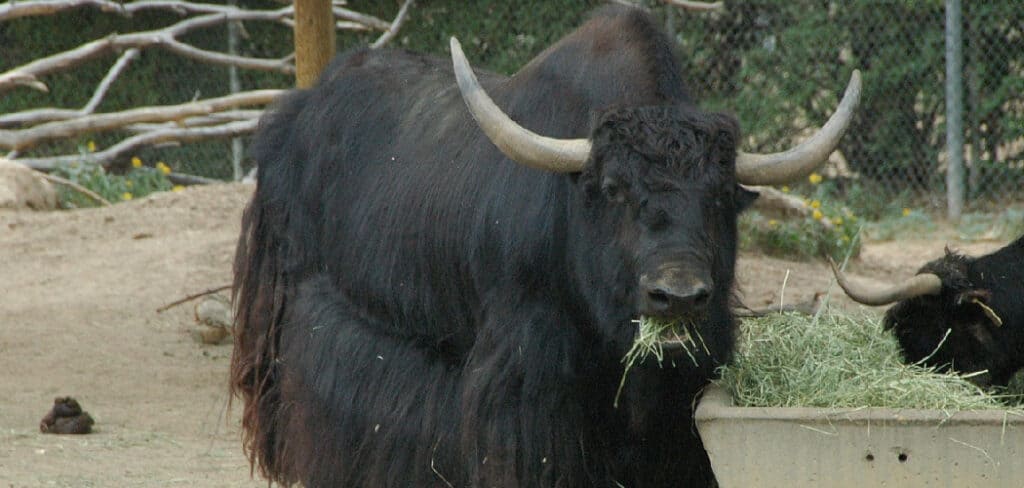
Yak Symbolism and Meaning
Yak Native American Symbolism
Native Americans have long held a deep respect for the natural world, and animals have played an important role in their spiritual beliefs. The yak is a particularly significant animal to many tribes and has a rich history of symbolism and mythology. In some cultures, the yak is seen as a powerful protector and is often associated with strength and courage.
In other traditions, the yak is seen as a symbol of good luck and prosperity. Regardless of its specific meaning, the yak is an important part of Native American culture and continues to hold a special place in the hearts of many people.
Yak Eastern Symbolism
The yak is a symbol of many things in Eastern cultures. In China, it is seen as a symbol of strength and power. The yak is also a popular figure in Tibetan Buddhism, where it is seen as a representation of wisdom and compassion. In Hinduism, the yak is seen as a sacred animal that can be used for sacrificial purposes.
In Mongolia, the yak is considered to be a national treasure. This is because the meat of the yak is very nutritious, and the hide can be used to make clothing and other items.
The yak also produces a valuable type of milk that is often used in traditional Tibetan medicine. Consequently, the yak plays an important role in many Eastern cultures in terms of its symbolism and practical uses.
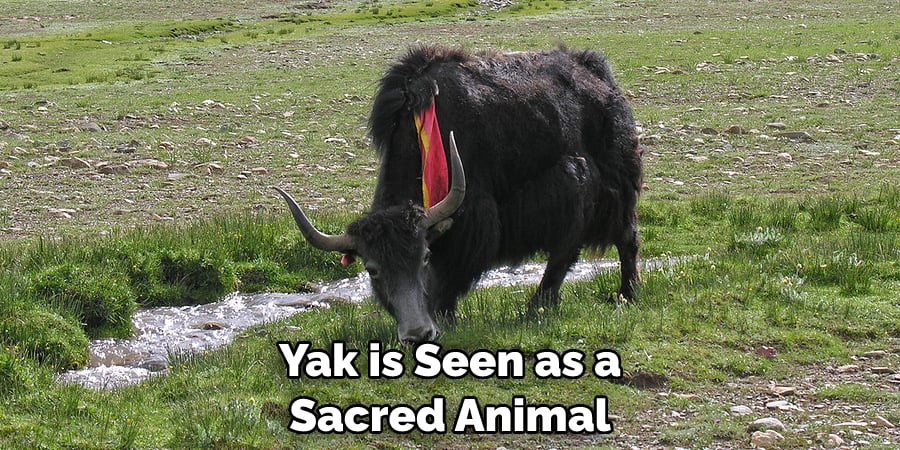
Yak Christianity Symbolism
Christianity has been practiced in Tibet for centuries and has blended with the local culture in many ways. One of the most visible examples of this is the widespread use of yak fur in religious ceremonies. Yak fur is considered to be holy by Tibetan Buddhists, and it is often used to make robes for monks and other religious figures.
It is also used to create thangkas, religious paintings hung in temples and homes. The use of yak fur in religious ceremonies symbolizes the union of Tibetan culture and Christianity. It also highlights the importance of protecting the environment, as the yak is endangered. By using yak fur in their ceremonies, Tibetan Christians send a powerful message about the need to respect all life.
Yak Celtic Symbolism
In many cultures, animals are seen as symbols of strength, power, and wisdom. The yak is no exception. In Tibetan culture, the yak is seen as a powerful creature that can weather any storm.
They are often used as pack animals in the Himalayas, carrying supplies and people across treacherous terrain. The yak is also seen as a symbol of good luck, and it is not uncommon for Tibetan monks to keep yaks as pets.
In China, the yak is also seen as a powerful animal and associated with wealth and prosperity. Yak meat is considered a delicacy, and their fur is used to make clothing and blankets that are extremely valuable. In both Tibet and China, the yak is respected and admired for its strength and endurance.
Yak African Symbolism
In many cultures, the yak is a sacred animal. In Tibet, it is considered to be a guardian of the Buddhist faith. In Mongolia, it is revered as a symbol of strength and endurance. And in Africa, the yak is often seen as a representation of wisdom and knowledge. The yak is also known for its distinctive features, including its long horns and shaggy fur.
These characteristics make the yak an ideal subject for African art and symbolism. As such, the yak can be found in many traditional African sculptures and paintings. In addition, the yak is often used as a motif in African Tribal masks and textiles. As a result, the yak plays an important role in African culture and spirituality.
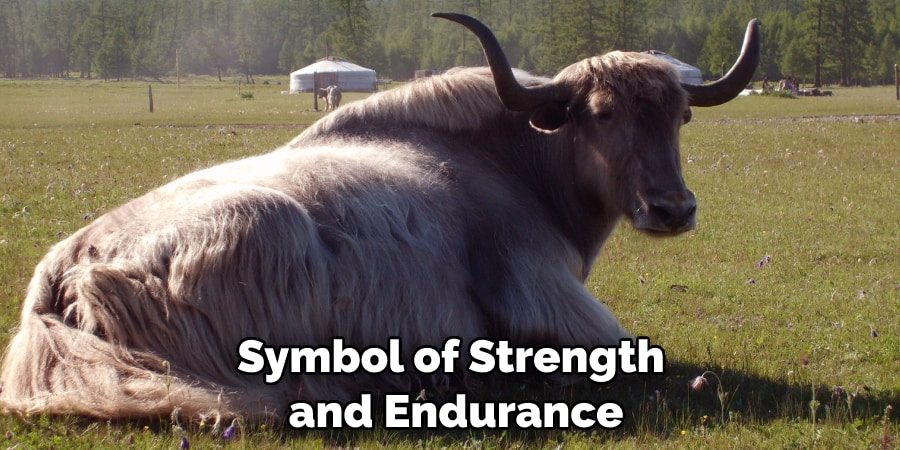
You Can Check It Out To Sulcata Tortoise Spiritual Meaning, Symbolism and Totem
Yak Spiritual Meaning
Yak’s spiritual meaning is unique, and this animal is believed to be a carrier of souls. It is also said that yaks possess the ability to project their thoughts into the minds of others. Yak Herders in Nepal believe that their herds are protected by a Guardian Yak who watches over them.
The yak is also a very important source of food, milk, and transportation in the high mountains of Nepal and Tibet. In fact, the yak is so important to the people of these regions that they often refer to it as the “ship of the Himalayas.” In addition, due to its spiritual significance, the yak is considered to be a holy animal by many.
People who see a yak for the first time are often awestruck by its size and strength. However, even though yaks are not known to be aggressive animals, they can be very dangerous if they feel threatened. Because of this, many people respect and even fear these animals.
Those who have had the privilege of spending time with yaks often speak of them with great admiration and respect. Seeing a yak in person is truly an unforgettable experience.
Yak in Dreams
Dreams involving yaks are not as common as one might think. In fact, according to a recent survey of dream experts, less than 1% of all dreams involve yaks.
However, when yaks do appear in dreams, they often symbolize strength, power, and endurance. Yaks are often seen as calm and docile creatures, but they are actually quite powerful and can carry heavy loads for long distances.
This strength and power are often seen as a metaphor for the strength and power of the dreamer. Dreams involving yaks may also represent the dreamer’s personal growth and development journey.
In many cultures, yaks are seen as sacred animals, and their appearance in a dream may signify that the dreamer is about to embark on a spiritual journey.
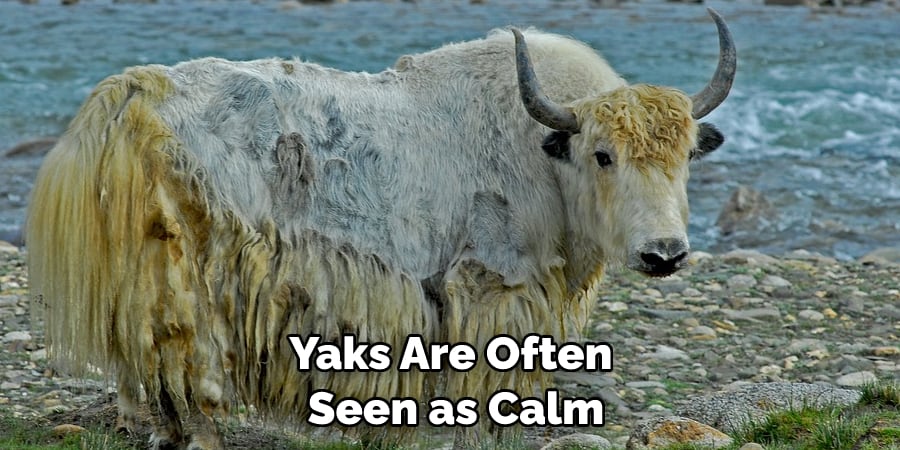
Yak Encounters and Omens
Yaks are considered lucky symbols in many parts of the world. For example, the Chinese believe that yaks bring good fortune, and in some Tibetan villages, it is considered good luck to encounter a yak on the road. In Nepal, yaks are often seen as omens of prosperity, and they are said to be able to predict the future.
Some people even believe that yaks can communicate with the gods. While there is no scientific evidence to support these claims, there is no denying that yaks have a special place in many cultures. For centuries, people have been drawn to these powerful and mystical creatures, and their legend is likely to continue for many years to come.
Yak’s Meaning in Mythology and Folklore
Yaks have long been a part of Himalayan mythology and folklore. In Tibetan Buddhism, the yak is seen as a divine creature that can help to transport people to the afterlife. In Nepali folklore, the yak is said to be a reincarnated lama, and it is believed that yaks possess the ability to understand human speech.
In many parts of the Himalayas, yaks are also seen as a bringer of good luck and are often offered food and flowers. The yak is also an important source of meat, milk, and wool in many Himalayan communities. In addition to their practical uses, yaks play an important role in the cultural and spiritual life of the Himalayan people.
Yak Totem Animal
The yak is a massive beast, standing 6 feet tall at the shoulder and weighing up to 2000 pounds. Yet, despite their size, yaks are incredibly agile, able to scale steep mountainsides and maneuver through rocky terrain. They are also built for endurance, able to travel long distances without tiring.
In many ways, the yak embodies the qualities of strength, power, and stamina. So it is no wonder that the yak has been a totem animal for centuries. For the people of Tibet and Nepal, the yak is a source of food, clothing, and transportation. But the Yak also represents something more – the hardy spirit of the Himalayan people.
Despite harsh conditions and difficult terrain, they have persevered, partly thanks to their reliance on this mighty animal. So the next time you see a yak, take a moment to appreciate all that it represents.
Yak Tattoo Meaning
Yak tattoos are very popular in Asia, especially among the Tibetan people. The yak is a sacred animal to the Tibetans, and it is believed to embody the power of Buddha. Yak tattoos often feature the face of the yak, which is said to represent wisdom and strength. The yak horns are also considered very powerful and are often depicted in yak tattoos.

In addition to their religious meaning, yak tattoos also have a strong cultural significance. Yak tattoos are often seen as a symbol of good luck and are often given as gifts to loved ones. Yak tattoos are also said to represent the cycle of life, death, and rebirth. As a result, they are seen as a tattoo that can be both spiritual and cultural in nature.
Conclusion
From a spiritual perspective, yaks represent strength, stability, and determination. They are also associated with adaptability and resourcefulness. Their hardy nature makes them excellent totems for those who are facing challenges in their lives.
Yak energy can help us find our inner strength and stay grounded during times of change or upheaval. Thanks for reading our post about the yak spiritual meaning.
You Can Check It Out to Moose Spiritual Meaning, Symbolism, and Totem

